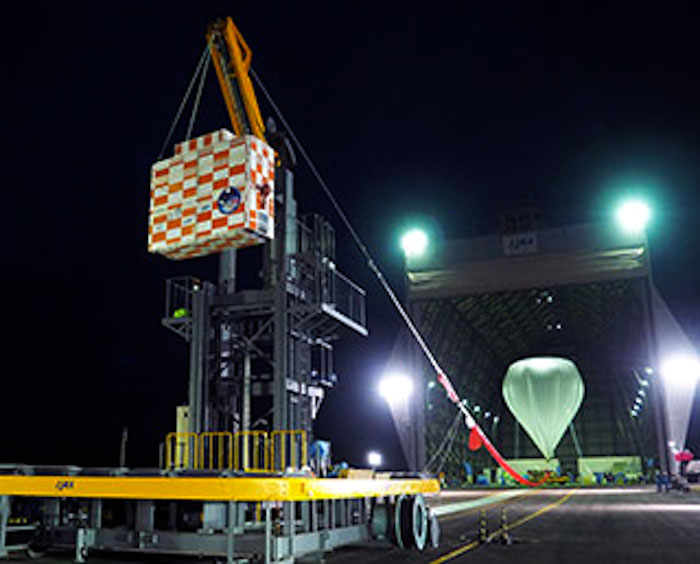.

JAXA released the first scientific balloon in Japan Fiscal Year 2016 from the Taiki Aerospace Research Field, which is a base for cooperation between the host town and JAXA, at 3:43 a.m. on June 8 (Wed.), 2016. The purpose of this experiment is to capture microorganisms in the stratosphere. The balloon used this time is a large-size one with a maximum expansion volume of 15,000 cubic meters (33.5 meters in diameter), and it ascended at a speed of 300 meters/minute.
The balloon entered in a state of horizontal floating at an altitude of 28 km over the Pacific Ocean some 35 km east from the Taiki Aerospace Research Field at one hour and 40 minutes after its release. At 5:50 a.m., the balloon and an instrument to collect microorganisms were detached by a radio command and they landed softly on the ocean about 30 km east from the Taiki Field. They were recovered by a boat at 6:28 a.m.
* We so far have a few reports about the existence of microorganisms in the upper Earth atmosphere (in the stratosphere and mesosphere) through collecting microorganisms. Understanding the kinds of organisms in the upper atmosphere and clarifying their distribution are very important to learn about the upper end of the Earth’s biosphere. The experiment this time aimed at capturing microorganisms while the instrument to collect them was detached from the balloon and descending by a parachute. After collection, microorganisms and particle specimens in the instrument are to be analyzed.
.

Quelle: JAXA
5374 Views
